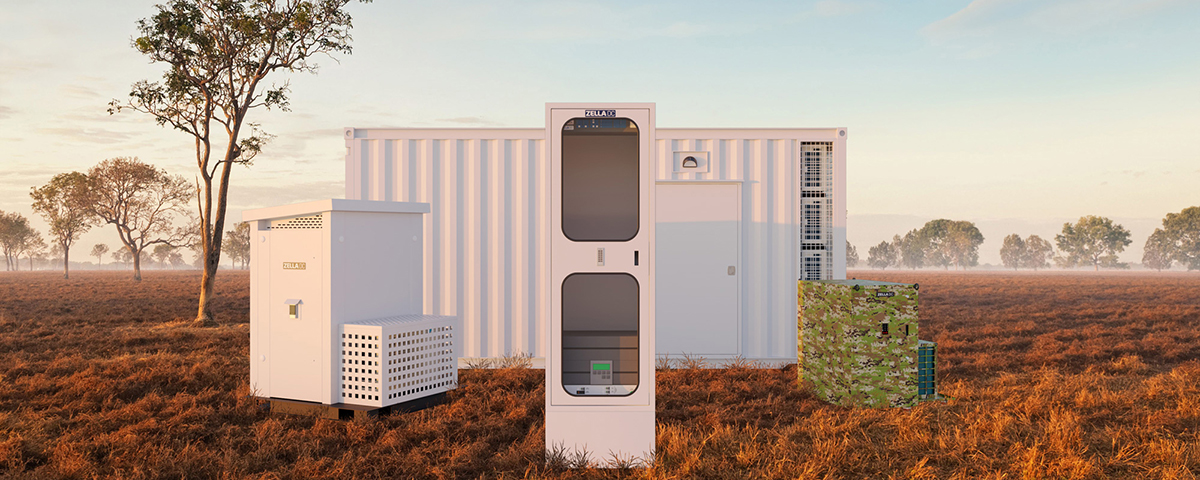As the world becomes increasingly digital, the telecom industry plays a pivotal role in connecting people and devices. Behind the scenes, micro data centres are emerging as essential infrastructure, complementing telecom networks and enabling the seamless delivery of modern communication services. Let’s explore how telecom and micro data centres are interconnected and why this relationship is critical for the future of connectivity.
1. Supporting 5G networks
The rollout of 5G networks is transforming the telecom industry by enabling faster, more reliable connections. However, this transformation comes with challenges, such as the need for ultra-low latency and high data throughput.
- Low latency – Micro data centres are strategically located close to end users, significantly reducing the distance data needs to travel. This minimises latency, a key requirement for real-time applications like augmented reality (AR), virtual reality (VR), and autonomous vehicles.
- Edge computing – By enabling edge computing, micro data centres allow data to be processed locally rather than being sent to distant centralised data centres. This ensures faster response times and efficient data management, which are critical for 5G applications.
2. Improving network efficiency
Efficient networks are the backbone of modern telecom services. Micro data centres enhance this efficiency in several ways:
- Decentralisation – Unlike traditional centralised data centres, micro data centres decentralise data processing and storage. This reduces network congestion and improves overall performance.
- Content delivery – Telecom operators use micro data centres for local content delivery, optimising bandwidth usage and providing seamless experiences for data-heavy applications like video streaming.
3. Enabling IoT growth
The Internet of Things (IoT) relies heavily on robust telecom networks to connect devices and transmit data. Micro data centres play a crucial role in managing this influx of data:
- IoT support – By processing and storing IoT data closer to the source, micro data centres reduce the strain on centralised infrastructure. This localised approach ensures faster decision-making and real-time analytics.
- Scalability – As IoT devices proliferate, micro data centres provide the scalability needed to accommodate growing data volumes.
4. Disaster recovery and network resilience
Network reliability is paramount for telecom operators. Micro data centres enhance resilience and disaster recovery capabilities:
- Edge redundancy – Deploying micro data centres in multiple locations creates a decentralised network infrastructure, reducing the impact of outages on a centralised system.
- Localised Processing – By maintaining operations at the edge, telecom providers ensure uninterrupted services during network failures or natural disasters.
5. Cost and scalability advantages
Telecom companies are under constant pressure to optimise costs while expanding their services. Micro data centres provide a solution that addresses both needs:
- Operational efficiency – By reducing reliance on large-scale centralised data centres, telecom operators can lower operational costs without compromising performance.
- Pay-As-You-Grow model – Micro data centres offer scalability, allowing telecom companies to expand their infrastructure incrementally as demand increases.
6. Enhancing customer experiences
In the highly competitive telecom market, customer experience is a key differentiator. Micro data centres enable telecom providers to deliver superior services:
- Faster services – Reduced latency and improved bandwidth efficiency translate to faster, more reliable telecom services.
- Localised services – Micro data centres allow telecom operators to offer region-specific services with better performance and customisation, catering to the unique needs of local markets.
Conclusion
The synergy between telecom networks and micro data centres is shaping the future of connectivity. By addressing challenges like latency, scalability, and network resilience, micro data centres empower telecom operators to deliver cutting-edge services that meet the demands of a digitally connected world. As technologies like 5G and IoT continue to evolve, the role of micro data centres will only become more vital, solidifying their place as a cornerstone of modern telecom infrastructure.
Get in touch to find out why our range of indoor and outdoor micro data centres is the ideal solution for telecom operators wanting to modernise their infrastructure.






